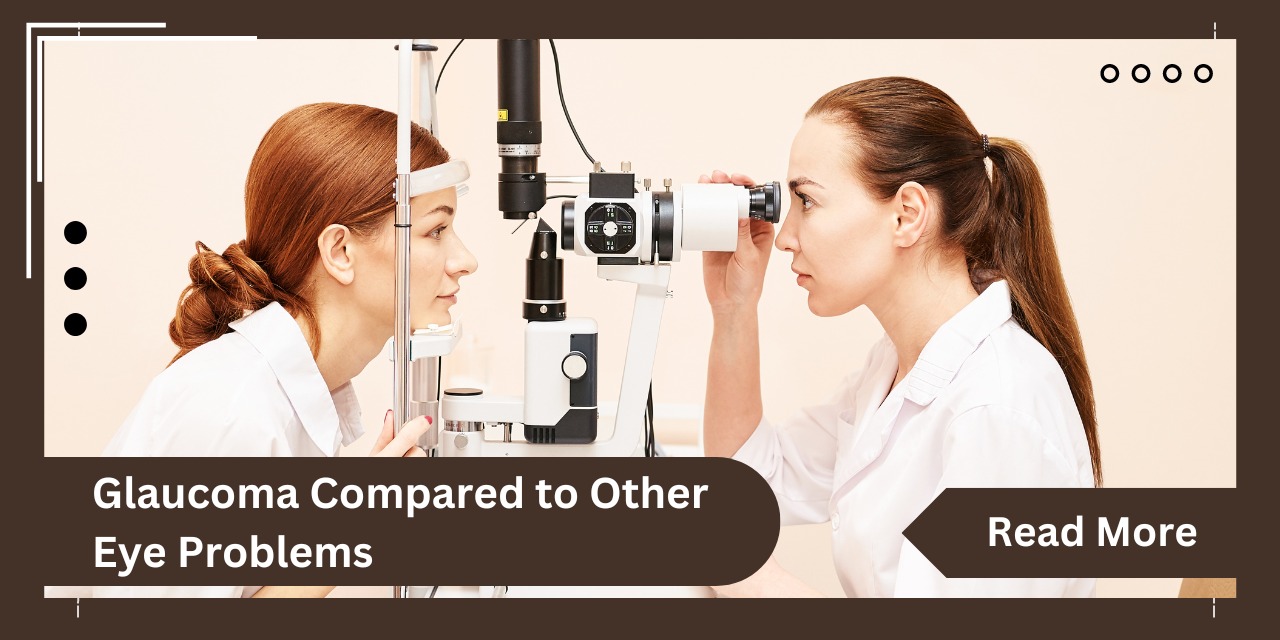Glaucoma is a serious eye condition that affects millions worldwide, yet it often goes undiagnosed until significant damage has occurred. Understanding how glaucoma differs from other common eye problems is crucial for early detection and effective management. In this article, we’ll explore the unique aspects of glaucoma, compare it with other eye issues, and highlight the importance of regular eye examinations.
What is Glaucoma?
Glaucoma is a group of eye diseases characterized by damage to the optic nerve, which is essential for vision. This damage is often caused by increased intraocular pressure (IOP), but can also occur with normal pressure. The optic nerve is responsible for transmitting visual information from the eye to the brain, and damage to this nerve can lead to vision loss or blindness.
Types of Glaucoma
- Open-Angle Glaucoma: This is the most common type of glaucoma. It occurs when the drainage canals in the eye become clogged over time, leading to increased IOP. It develops slowly and often without noticeable symptoms, making regular eye exams critical.
- Angle-Closure Glaucoma: This type is less common but more acute. It happens when the drainage canals become blocked suddenly, causing a rapid increase in IOP. Symptoms may include severe eye pain, headache, nausea, and blurred vision. Angle-closure glaucoma is considered a medical emergency.
- Normal-Tension Glaucoma: Despite having normal IOP, some individuals may still experience optic nerve damage. The exact cause is unclear, but it may be related to reduced blood flow to the optic nerve.
- Congenital Glaucoma: This is a rare form of glaucoma that occurs in infants and young children due to abnormal eye development.
How Does Glaucoma Differ from Other Common Eye Problems?
➽ Cataracts
Cataracts occur when the lens of the eye becomes cloudy, leading to blurred vision. Unlike glaucoma, which affects the optic nerve, cataracts involve the lens. Symptoms include gradual vision loss, glare, and difficulty seeing at night. Cataracts are usually treated with surgery to replace the cloudy lens with a clear artificial one.
➽ Macular Degeneration
Macular degeneration affects the macula, the central part of the retina responsible for sharp, central vision. It leads to a gradual loss of central vision while peripheral vision remains intact. This condition is not related to increased IOP, unlike glaucoma. Treatment options include medications, laser therapy, and lifestyle changes.
➽ Diabetic Retinopathy
Diabetic retinopathy is a complication of diabetes that affects the blood vessels in the retina. It can cause vision problems due to leakage, bleeding, or scarring in the retina. Unlike glaucoma, which primarily affects the optic nerve, diabetic retinopathy impacts the retinal blood vessels. Management involves controlling blood sugar levels and, in severe cases, laser treatment.
➽ Dry Eye Syndrome
Dry eye syndrome is caused by insufficient tear production or poor tear quality, leading to discomfort, irritation, and potential vision problems. It does not involve increased IOP or optic nerve damage, distinguishing it from glaucoma. Treatment may include artificial tears, lifestyle changes, and medications to improve tear production.
Importance of Early Detection
Unlike some eye conditions that present with noticeable symptoms, glaucoma often develops silently. Early detection is crucial because once vision loss occurs, it is irreversible. Regular eye exams at the best eye hospital in Patiala can help detect glaucoma before significant damage occurs, allowing for timely intervention and management.
Conclusion
Understanding the differences between glaucoma and other common eye problems is essential for effective eye care. Glaucoma is a unique condition involving optic nerve damage due to increased intraocular pressure or other factors. In contrast, conditions like cataracts, macular degeneration, diabetic retinopathy, and dry eye syndrome affect different parts of the eye and have distinct symptoms and treatments. For a comprehensive evaluation and personalized care, visit Dr. Kavnit Kaur at PreetInder Singh Eye Hospital in Patiala. For more information or to schedule an appointment, please contact us at +911752227169.

